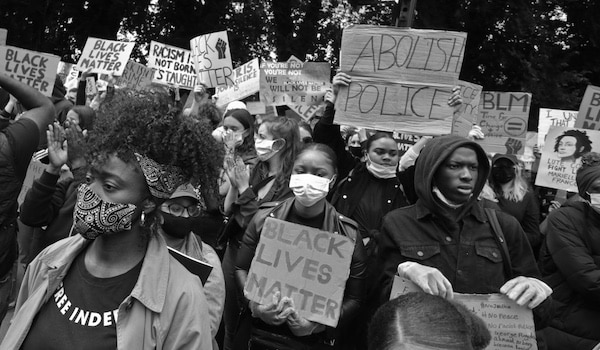The first of these questions arises from a perennial frustration for those of us unhappy with the status quo. Why, we might ask ourselves, do so many people seemingly cling to a system that causes such misery?
The second question, a more hopeful one, is essential to think about if we aspire to a better world. If the world is to change, people’s ideas must surely change.
Karl Marx was a materialist, not an idealist. He regarded the material conditions of life to be the basis of society. How we produce what is necessary to satisfy our wants was his starting point.
The ruling ideas in any society, according to Marx, are those of the current ruling class. It is those who possess the means of material production who, unsurprisingly, control the means of mental production. In other words, it is the capitalist class that dominates in the fi eld of ideas, via the media, the education system and much else.
These ruling ideas have changed over time. The bourgeois revolutions (the English revolution in the seventeenth century, the American and French revolutions in the eighteenth century) saw the rising capitalist class challenging the old ideas of late feudalism.
Sometimes, the established ideas can lag behind fresh economic and social developments. New ideas emerge alongside new material developments.
However, there is more to the acceptance of dominant ideas than the rich and powerful having the dominant position in society. For workers, the conditions of life can be a breeding ground for accepting these ideas. A lack of power fuels a sense, naturally enough, of powerlessness.
This encourages a mood of passivity. Workers feel helpless in a world that seems overwhelming. Alienation arises inevitably from workers being cut off from control of their own work, and from control of society more generally.
This helplessness is compounded by the experience of being in competition with other workers within capitalism.
Workers tend, therefore, towards experiencing social problems as personal problems. They feel themselves to be isolated individuals, not part of a collective working class.
Such conditions of alienation, competition and isolation are a breeding ground for backward ideas, such as racism, that run counter to workers’ own interests.
This is why the ideas of the dominant capitalist class can get such a hearing inside the working class, despite those ideas reflecting the interests of capitalists, not workers. Ruling-class control of the media reinforces and strengthens the influence of such ideas, but it isn’t enough to explain why these ideas are often largely accepted.
Marx, however, recognised that the ideas that circulate in society are more complex than simple transmission from the ruling class to everyone else. Ideas are contested and debated. Contradictory ideas circulate together.
Thankfully, the world is more complex than the dystopian nightmare of total ideological control by the ruling elites. This is precisely because of the ways in which dominant ideas clash with working-class people’s lived experiences.
Racist ideas clash with the experience of living and working alongside people from a range of racial and ethnic backgrounds. The idea that austerity is necessary collides with workers’ dissatisfaction that their living standards are falling as their pay is cut, while prices are rising.
This is not merely limited to someone’s own direct lived experiences. Awareness of the wider world can lead to a rejection of many of the dominant ideas. Seeing footage of Palestinian lives devastated by Israeli genocide can lead people to question ruling-class ideas about what is happening and why.
Observing the destructive impact of climate change can provoke a critical attitude towards the capitalist system that puts profits ahead of people and planet.
Such empirical observation is, at least for a minority, the starting point for a wider questioning of ruling ideology. They move from specific instances to a more general opposition to aspects of capitalist domination. Such oppositional ideas are held by many millions of people.
Finally, the experience of collective struggle, strikes, demonstrations, and mass movements, can accelerate the rejection of ruling ideas among large numbers. Above all, revolutions are mass phenomena that cast off old certainties and lead millions to re-think many of their ideas.
Marxists reject capitalism as a totality. At the same time, they struggle alongside those who partially reject the system but partially accept it. In the course of joint struggle and debate, they seek to win larger numbers to a consistently anti-capitalist worldview.
Alex Snowdon is a Counterfire activist in Newcastle. He is active in the Palestine Solidarity Campaign, Stop the War Coalition and the National Education Union. He is the author of A Short Guide to Israeli Apartheid (2022).

